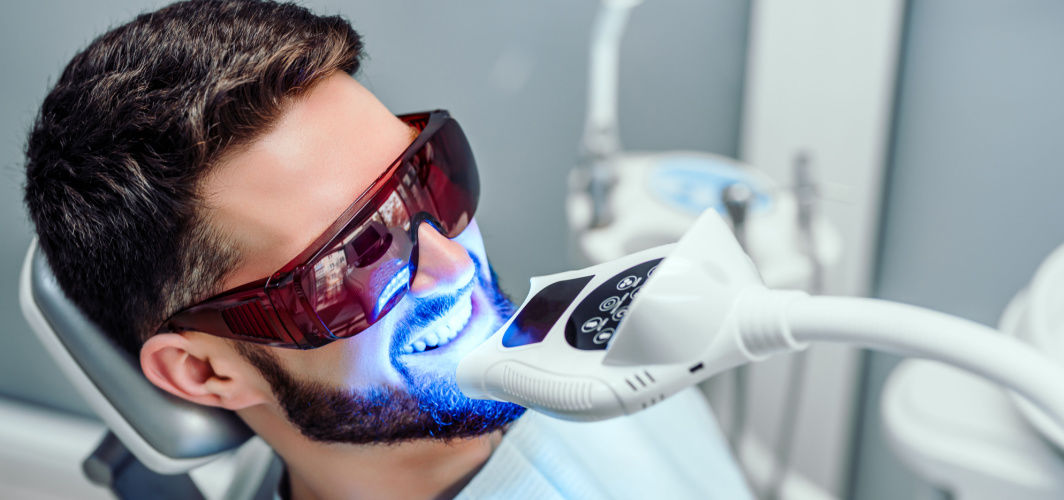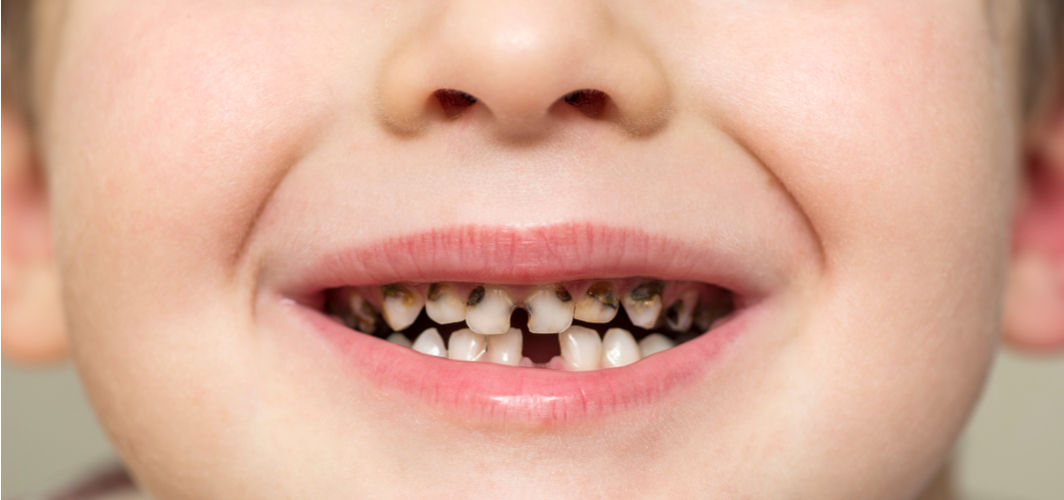Oral & Dental
Can Bad Breath Be A Sign Of An Underlying Health Condition?
5 min read
By Dr Sonia Bhatt, Dental Surgeon - 25 April 2022, Updated on - 07 August 2024
Share this article
0
0 like

Bad breath may seem like an insignificant medical issue but it can be the biggest adversary to your charming persona. Sometimes, when that problem is severe, you will find it embarrassing. As a temporary relief, you might spray some mouth freshener or gnaw on some menthol-laced chewing gum to suppress the smell but these are all temporary hacks that cannot prosper for long. Finding a permanent solution is rather important for this as bad breath can actually be a symptom of a severe health disorder. 
What Causes Bad Breath?
While poor oral health is considered to be the sole reason for halitosis (the medical term for bad breath), several underlying health conditions may also make your breath stink.
- Oral issues:
- Poor oral hygiene
- Breathing through the mouth at night
- Gum infection (periodontitis)
- Dry mouth due to diseases (Sjogren’s syndrome) or medicines (anti-seizure medications)
- Use of tobacco products (both smoked and smokeless)
- Medical conditions:
- Respiratory infections such as bronchitis and sinusitis
- Diabetes
- Liver or kidney disease
- Gastric conditions such as GERD (Gastroesophageal reflux disease) or intestinal obstruction
- Syphilis (a sexually transmitted infection)
Different Types Of Bad Breath
Bad breath stemming from underlying health conditions may have a distinctive odour.
1. Breath like decaying flesh
- The breath of a person suffering from liver insufficiency or liver failure is often called “fetor hepaticus”, which means the smell of a dead person. Due to the inability of the liver to remove waste material (bilirubin) from the blood, the breath may smell like a decaying corpse.
- People suffering from Wegener’s granulomatosis, an autoimmune condition marked by inflammation of the respiratory tract, kidneys and small vessels of the body, may result in a breath that smells like rotting and decaying flesh.
- A respiratory condition called bronchiectasis, where the airways widen and cause a buildup of excess mucus can result in a breath that smells like rotten meat.
- People suffering from a lung abscess may have putrid breath. A lung abscess is an infection that causes the death of the lung tissue and the accumulation of debris deep inside the lung cavities.
- Liver cirrhosis, a condition where scar tissue (fibres) forms in the liver, may cause the breath to smell like a festering wound.
2. Fruity breath
Fruity, acetone-like breath is a classic sign of ketoacidosis in diabetics. Due to insufficient levels of insulin in the blood, the body is unable to use glucose for energy. Therefore, the body breaks down fats to gain glucose. However, in the process of the breakdown of fats, a byproduct called ketone is released in the body, which is responsible for the fruity breath in diabetics.
Recommended Read: Significance Of Oral Care For People With Diabetes
3. Breath that smells like fish
Trimethylaminuria is a rare metabolic disorder, also known as fish odour syndrome or fish malodor syndrome, characterised by a lack of an enzyme (flavin-containing monooxygenase) that is necessary to break down nitrogen-containing compounds from the diet. Excess nitrogen compounds in the body can raise the pH of the body fluids, making them toxic. Trimethylaminuria can result in a breath that smells like fish.
4. Breath like sweaty feet
A genetic condition called Isovaleric acidemia can cause a person’s breath to smell like sweaty feet. In this condition, due to the lack of an enzyme responsible for the breakdown of the amino acid leucine, there is an accumulation of isovaleric acid in the blood, which has the potential to damage the brain and nerve system.
5. Breath that smells like urine
Conditions that may cause breath to smell like urine include:
- Kidney failure, a life-threatening condition where the kidneys are unable to filter the blood and remove the waste products of digestion.
- A genetic condition called azotemia, characterized by excess nitrogen, creatinine and other waste products in the blood can cause harm to the kidneys.
6. Breath that smells like faeces
People with bowel obstruction (blockage in the intestines) may have breath that smells like faeces. In rare cases, people suffering from liver failure may also develop a similar breath.
How To Get Rid Of Bad Breath?
The treatment of halitosis may require a multi-disciplinary approach.
- Maintain oral hygiene: Brush regularly with a soft-bristled toothbrush and use floss to clean the spaces between the teeth. Clean the tongue using a scraper.

- Mask the breath: Use chlorhexidine mouthwash to kill the infection-causing bacteria in the mouth. One can also use mint flavoured chewing gums or mouth sprays to get rid of the bad breath temporarily.
- Quit unhealthy habits: Quit smoking and chewing tobacco products as they cause dry mouth and leave a pungent smell. Also cut down the consumption of sugary foods and beverages as they increase the count of bad bacteria in the mouth, which can otherwise cause several dental problems including cavities and plaque accumulation.
- Treat the underlying cause: Get treated for underlying conditions such as respiratory, liver or kidney diseases, which could be causing the foul smell in the mouth.
- Visit the dentist regularly: One should visit a dentist frequently to get treated for any oral condition that could result in an unpleasant breath. For instance, dental scaling helps in cleaning the plaque and hard tartar on the teeth and also treats periodontitis, which otherwise results in bad breath.
Recommended Read: 7 Signs You Should Visit a Dentist
Apart from poor oral hygiene, medical conditions such as diabetes, respiratory disorders, and kidney diseases can make your breath smell unpleasant. People suffering from persistent foul-smelling breath must consult a doctor for further investigation. Meanwhile, it is advisable to practise basic oral hygiene measures regularly. For more information,
Oral & Dental
Consult Top Pulmonology Respiratory Medicine Specialists
View AllLeave Comment
Recommended for you

Oral & Dental
How to Find the Best Mouthwash?
Discover the best mouthwash for your oral health needs. Learn about how to make an informed choice. Find out where to buy the right mouthwash for you.

Oral & Dental
Teeth Whitening: Types, Risks, Side Effects, Results
Achieve a brighter smile with professional teeth whitening. Learn about the different types of teeth bleaching techniques, their risks, side effects and results.

Oral & Dental
Not Brushing Your Baby’s Teeth? They Can Get Cavities Too!
While we know the importance of oral care in preventing dental diseases, it is extremely important to begin this care right from infancy. This article addresses how cavities can develop in infants and the ways to prevent them.
Subscribe
Sign up for our free Health Library Daily Newsletter
Get doctor-approved health tips, news, and more.
Recommended for you

Oral & Dental
How to Find the Best Mouthwash?
Discover the best mouthwash for your oral health needs. Learn about how to make an informed choice. Find out where to buy the right mouthwash for you.

Oral & Dental
Teeth Whitening: Types, Risks, Side Effects, Results
Achieve a brighter smile with professional teeth whitening. Learn about the different types of teeth bleaching techniques, their risks, side effects and results.

Oral & Dental
Not Brushing Your Baby’s Teeth? They Can Get Cavities Too!
While we know the importance of oral care in preventing dental diseases, it is extremely important to begin this care right from infancy. This article addresses how cavities can develop in infants and the ways to prevent them.



